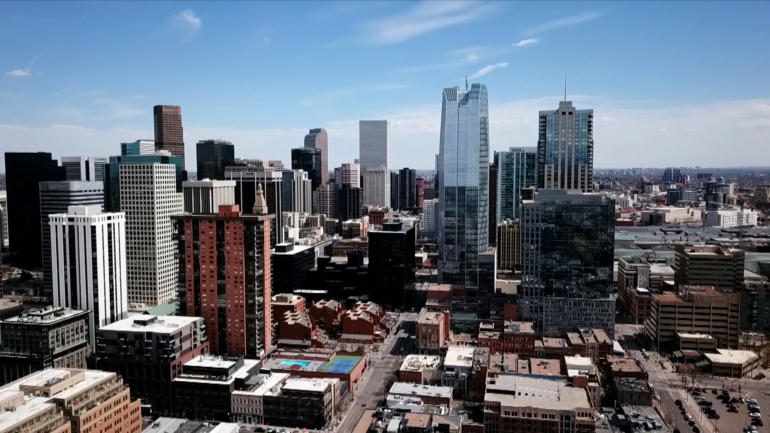Lower downtown Denver is a thriving area, especially on baseball’s Opening Day. Like the rest of this once mining-dependent city, LoDo, as it’s called, has gone from boom to bust to boom. It has a rich but also painful history.
“For too long this painful history has been swept under the carpet,” says Denver’s Mayor Michael Hancock.
It’s marked, Hancock says, by a riot that broke out on October 31st, 1880. It began in a local bar.
“A couple of Chinese were playing pool, and they were being harassed by some drunken White workers and a fight broke out,” according to Historian William Wei.
A mob of 3-5,000 Whites descended on the area and during a day-long rampage destroyed hundreds of Chinese immigrant businesses and homes. A young Chinese man was lynched. 142 years later, Denver’s apology for the event finally came.
“I, Michael B. Hancock, mayor of the city and county of Denver do hereby sincerely apologize to the early Chinese immigrants and their descendants and acknowledge Denver’s past role in nearly a century of violence and discrimination including the dismantling and destruction of Denver’s historic Chinatown.”
What happened here was part of what’s been termed an anti-Chinese ‘panic’ during the 1870s and 1880s. This riot, memorialized inaccurately as a Chinese riot, was one of many that occurred across the U.S. West.
Historians say racism drove some Whites to target Chinese laborers who they saw as an economic and cultural threat.
“The Chinese looked different, they dressed different, they had different customs. I think with any marginalized community, they hated them, everyone thought that they were competing for other jobs but they weren’t,” says descendant Linda Lung.
Linda Lung’s great-grandfather lived in Denver at the time.
“No, he did not experience the riot but he knew there was going to be trouble,” she says.
The apology is meant for her and countless others whose family members experienced this dark part of Denver’s past.
“It will also serve to educate those who are ignorant of this shameful chapter in Colorado’s history,” says Hancock.
Denver becomes the 5th U.S. city, and first outside of California, to issue this kind of apology. Urban renewal removed what the mob didn’t destroy but Chinatown’s legacy here is alive to this day.
Historian William Wei calls the apology an important milestone.
“This is still a great country, and one of the ways that makes it a great country is its willingness to own up to its mistakes.”
And, he says, make racial reconciliation a priority, work that’s far from complete.
 CGTN America
CGTN America
 Denver formally apologizes for the 1880 anti Chinese riot
Denver formally apologizes for the 1880 anti Chinese riot
